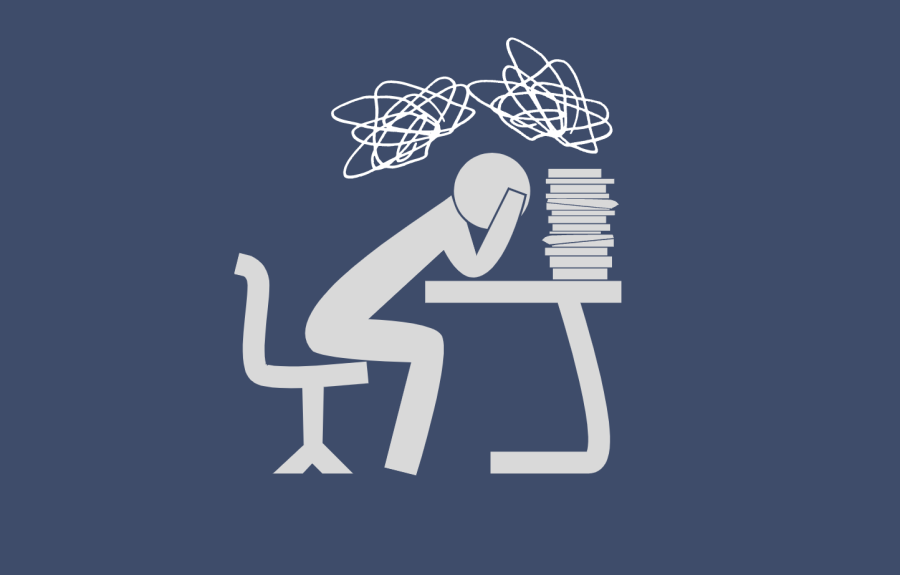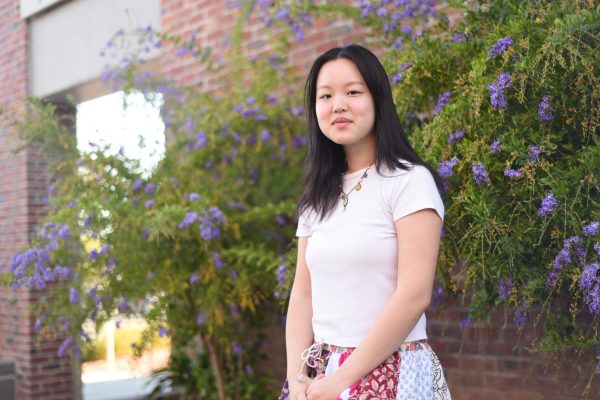The breaking point
Examining students’ experiences with burnout and where it stems from
Competitive academic culture and overwhelming workloads lead students to experience burnout
June 1, 2023
Student A will remain anonymous due to privacy concerns.
Sophomore Meghana Somu recalls a turning point in her academic career when her freshman year computer science teacher began publicly displaying students’ grades anonymously. In the rigorous STEM class with only a handful of other women, a toxic environment emerged from an already competitive class setting. Eventually, Somu was overwhelmed by feeling isolated and unsupported in the class, leading to a period of burnout that obstructed her academic goals.
“It got to the point where if I would walk [to the classroom] I would get so anxious because [I felt] like, ‘I can’t go to Java right now,’” Somu said. “I realized I was burnt out when second-semester finals came because I just could not study, like I physically could not. I felt like I couldn’t go to my teacher for help either, because I [felt] like he’d think I’m dumb because I’m a girl and I’m in Java. It’s kind of an irrational thought, but that’s also part of burnout.”
Burnout is defined as a state of physical, emotional or mental exhaustion experienced in combination with declining motivation, performance and self-image. MVHS school-based therapist Akiko Chung says burnout is a major mental health issue at MVHS, as the majority of the students she talks to specifically seek her help for it. Through Chung’s interactions with these students, she sees a common trend of parental pressure driving students to lose passion.
“I think often [students] set very high expectations based on others’ needs,” Chung said. “When you set too high expectations, that leads to low confidence [and] low self esteem if you don’t reach that expectation. Once you have the self confidence issue, that also leads to lack of motivation and lack of confidence to achieve the goal that [you] set.”
Similarly, Somu emphasizes the underlying trend of students lacking genuine passion for their academic aspirations. Somu’s own STEM career path was largely initiated by her parents, despite her personal disinterest. Somu says much like her own family, many children in Silicon Valley are pressured to pursue careers in STEM that don’t prioritize passion. Instead, such careers replicate paths that allowed their parents to succeed.
“Something that made me lose my direction was trying to focus on computer science because it was never something that I was passionate about or really interested in,” Somu said. “Working really hard on that when it wasn’t something that I enjoyed was definitely something that contributed to burnout.”
Somu’s sentiment is echoed by Student A, who felt a parental push to participate in a plethora of extracurricular activities which they eventually gave up. Despite their short-lived participation, Student A says the high-achieving culture at MVHS has pushed their peers to persevere through their lack of passion and continue to excel in these activities. While this culture has bred many successful students, Student A feels it ultimately manifests into an environment that causes burnout for others.
“There is a lot of diversity being cultivated [at MVHS] because people are pushed to do different things,” Student A said. “But on the other hand, that can become a toxic and harmful environment because you are pushed to be in competition with other people or see yourself as being in competition with other people and I think that leads to that feeling of being alone, which can further burnout.”
In Student A’s personal experience, burnout came in a toxic cycle of failure and demotivation. Student A’s self-inflicted overload of schoolwork and extracurricular activities during their sophomore year led to a decline in performance, as there was only so much effort they could put into each project. The feelings of failure that followed discouraged them from continuing to pursue their academic goals. They only began to recover from burnout when they recognized that their isolated mentality was a root cause.
“I felt pretty alone in [my burnout],” Student A said. “I didn’t think that the people around me, obviously because they’re not in my shoes, [understood] what I did. I think maybe having a place for that shared experience would really [have helped] me see that it’s not only me [who went] through that.”
Like Student A, Chung says the diverse skill sets, abilities and personalities within the MVHS community are dampened by the damaging trend of self-comparison. Chung emphasizes the need for students to shift toward inward focus rather than giving in to peer pressure. In a high-achieving culture where students constantly anticipate new challenges and feats, Chung recommends that students take a moment to recognize their accomplishments.
“When students walk into my office, they often lose hope or they often self doubt. [They think], ‘Can I do this? Can I do that?’” Chung said. “[My advice] is [to] focus on the here and now instead of focusing on what is ahead of you, because that will really trigger more anxiety. Focus on the here and now.”


















